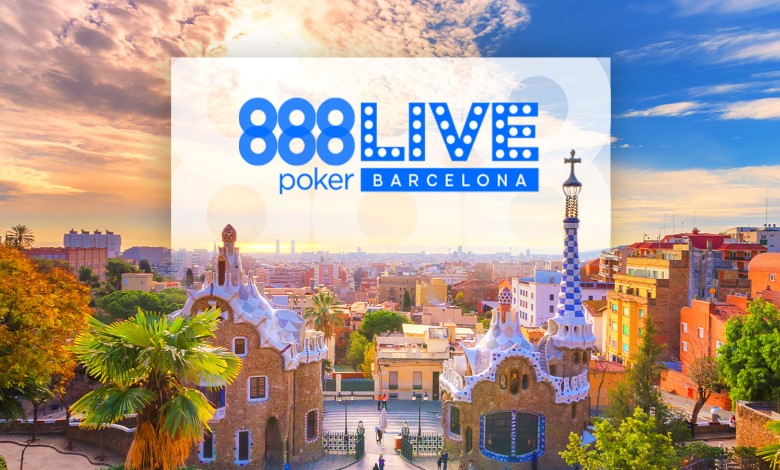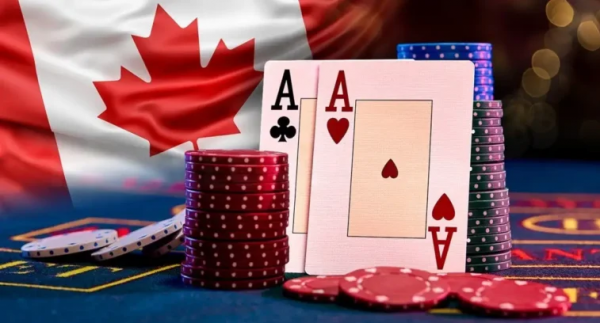Putting on a poker night is easy, right? How about organising an online poker home game for 10 people? 50 people? 100 million people?
Running a small, amateur online poker club during lockdown, I kept noticing the same type of issues arising that crop up when running a major poker platform. And I’d seen those issues firsthand, having previously spent six years working at PokerStars where decisions were being made every day on how to grow and sustain a base of keen poker players.
I was one of those keen players. Like many, my passion (and time) for poker only increased during lockdown. Our home games provided one of the few highlights of the week during those long months, and I wanted them to survive for as long as we wanted, or needed them.
I decided to use what I’d learned at the top of the online poker world to try and make a success of our little club at the bottom of it.

Beginnings
The story of our club throws up some interesting parallels with the story of online poker itself. The latter was born at the tail end of the 20th century, with the rapid spread of the internet and computer ownership providing the perfect backdrop. For us in March 2020, it was the national coronavirus lockdown.
No face-to-face socialisation, no pubs, restaurants or shops and, for many of us, no work. It was tough. Ordinarily we’d be being bombarded by ads from betting offers sports sites , but sports, too, were shut down. We’d even had to cancel the first live poker game we’d managed to get in the diary for a year or more.
Almost every Friday night during the noughties saw me playing in an action-packed home game somewhere in London, featuring the same revolving cast of 15-20 players. Always friendly and always fun, the game nevertheless had the type of deep rivalries and mind games that evolve over years of facing the same opponents week after week.
Long since scattered thanks to rising rents, raising children and ‘growing up’, the game had limped on in the form of occasional tournament nights, but it had been over a year since we’d last met up. Our planned game for April 9 was cancelled the day the national lockdown was announced: March 23.
Knowing I’d worked there, the host of our cancelled game asked me to set up a home game club at PokerStars so we could play online instead. Come Friday night we had 15 runners for the first tournament, with more than half of those sticking around to play a second. We decided to play once a week, though by Monday evening people were keen to play again. Twice a week it was, then.

The Marketing Side
Now that the club was set up, it needed to grow. At PokerStars I’d heard firsthand some of the expensive and extensive lengths the company went to in pursuit of new players in its early years. Throwing money at the problem had worked, as Stars built a huge player base as well as a reputation among players for generosity. I wasn’t about to be throwing any freerolls or bonuses around, though, for obvious reasons.
In terms of ‘marketing’, we formed a WhatsApp group and I adopted an open door admissions policy – if you applied to join the club, you were in (the ‘reverse Groucho‘). Everyone was encouraged to tell friends, family, neighbours, colleagues and anyone else who knew how to play.
At PokerStars I had worked across a lot of their communications including promotions, tournament series and general customer relationship management. As you might expect, this activity was supported with detailed analytics, endless testing and of course, big budgets.

So yeah, we’re not doing that, either. With WhatsApp and word-of-mouth the only ‘marketing tools’ really available for our poker club, the priorities had to be keeping people in the group and spreading the word for new members. For some reason, a lot of players’ neighbours joined the group, including a few of my own. (It strikes me that some neighbours and poker buddies occupy a similar place in my life: I might know them a lot, but not necessarily well.)
As for WhatsApp, I went back to marketing best practice 101: keep the message simple; make the desired action clear and easy to complete; don’t patronise or antagonise; don’t spam. I made the joining instructions easy to find, the code easy to remember, and accepted new applicants as soon as possible after they’d applied. I basically made myself the ‘customer service’ rep, with all that entails (“No, I can’t unban a random member’s account after he swore at PokerStars support, and sorry, I can’t personally process a deposit from a new member in the Czech Republic!”).
The WhatsApp group was especially useful early on for spreading info on upcoming tournaments, polling players on details like payouts, structures, etc., but it soon fell into the same traps as every other online group. Memes, fantasy football chat and pet pics; it’s understandable how people open up in these spaces, especially during a lockdown, but it’s also understandable why people might choose to stick the group on ‘mute’, or eventually leave it altogether.
Moneymaker and the ‘TrashCanKid’
The marketing of online poker got a crucial shot in the arm when Chris Moneymaker (yep, him on the billboard) won the WSOP in 2003, qualifying via a cheap online satellite. He shot to global fame, propelled by lazy editors the world over who couldn’t resist the obvious headlines based on his name, and PokerStars signed him up immediately as part of their marketing assault. ‘The Moneymaker Effect‘ was a tangible influence on the growth and popularity of online poker. Fame and riches were already within reach of every poker player with a modem, and now they knew it.
We didn’t have Moneymaker in our group, but we did have ‘TrashCanKid’. I didn’t know his real name, but he was the friend of a friend, based an hour or so outside London, who joined the club in time for the first tourney we ran. He won it, playing an unpredictable, aggressive style. Then won again the next night we played, and again the next. He won over $300 in a week playing small $5 tourneys against a bunch of guys who’d been playing for years.
At a time when combating boredom and stress was a common, daily goal, another night in with the PlayStation was as far ahead as many people were planning. ‘TrashCanKid’ had effectively won a PlayStation pursuing the same goal. I can only imagine that he was as ebullient in victory as Moneymaker was – and as popular – because very soon afterwards we had an influx of more than 20 players from his area: his friends, his brothers, their friends. And probably their neighbours.
‘The TrashCanKid Effect’ was noticeable. Fields increased, and with it prize money. Before long the majority of players in the game were strangers to me, and probably to most of each other. But we all looked forward to our Monday and Friday night games. Let’s face it; we had little else to do.

Online, no one berates you for not stacking your chips neatly. [Santeri Viinamäki, WikiCommons]
The Poker Side
The club was strictly amateur (many created their first online poker accounts to play), and set up to prioritise fun over profit.
With membership growing I wanted to do all I could to keep the club booming during the long, boring months of lockdown. Having previously worked closely at PokerStars with departments like Poker Room Management, Marketing, Rewards and Customer Relationship Management, I tried to make decisions that would help the long-term survival of the club in the same way those at a major poker platform aimed to protect their player ecology.
Choose the right stakes
While the old Friday night games had been played for stakes big enough to hurt, I didn’t want to price anyone out at a time when many were losing their jobs. $5.50 tournaments were almost as low as it was possible to get, but I knew players in the group who simply couldn’t afford to play higher. And besides, with unlimited rebuys for those who wanted them it would still be possible for first place prize money to be reason enough to smile (at a time when the value of smiles was at a premium), while a loss wouldn’t break the bank.
Set the schedule to fit the players
There’s a reason the big guaranteed online tournaments run on Sundays: they need the players, and that’s when they’re playing. During the lockdown the days tended to bleed together for many of us, but I felt the poker nights should be non-moving fixtures so players would know when the game was on without having to ask. Monday and Friday nights at 9pm, late enough so that any of us with kids would be free. Not so late, though, that we couldn’t manage two tournaments a night and still make it ‘in’ to work in the morning (in our pyjamas or not).
Offer the right games and structures
Online poker operators will only spread the games that enough people will play. Hold’em was obviously the only realistic choice of game for us, given the wide range of experience levels in our club, and I chose a turbo structure to keep things fun. Turbos also mitigate the skill gaps a little, working in favour of those newer to the game. Plus, it meant we could always play two tournaments in one night.

Less popular games offer fewer choices of stake or structure and are harder to find.
Spread the wealth
Freerolls are a great way for online poker rooms to attract new players and keep their more casual ones. Their aim is to distribute value to as many players as possible, using a shallow payout structure to spread wealth across the ecosystem and help players at every level survive.
It’s in the interests of a poker room to have an even distribution of wealth, so players can play for as long as possible. Accordingly, on a hunch, I set a shallow payout structure for our tournaments, paying the top 20% of the field.
Listen to players
A hunch is just a hunch; enough players balked at the top 20% structure to justify changing it to top 15%. You’ve got to listen to players and make adjustments to ensure longevity.
Sometimes these cardinal rules can be at odds with one another. For example, PokerStars’ transition to the Stars Rewards loyalty program saw the company take a lot of criticism. The problems around the new system were the result of friction between the goals of spreading the wealth and listening to players.
The company insisted the previous system of spreading the wealth – giving the most value to those who played the highest volume – was unsustainable. Listening to players, though, resulted in a wall of anger. Without getting into the nitty gritty, it’s clear PokerStars ultimately erred on the side of protecting sustainability.
The Boom
During the mid-noughties, poker hit a peak: fields at the WSOP Main Event set new records; partypoker was apparently raking $1 million a day in profit; you could watch poker on TV and play it on your games console. Upwards of 55 million people were estimated to play in the USA alone, and its international popularity was growing fast.
For us, in Spring 2020, the peak was our club of 50-something members coming together in our isolation and fighting it out for the cash and the bragging rights. The club included friends of mine from totally unrelated areas of my life, and to sit at a table with them, even a virtual one, gave me a sense of connection that I needed and missed. Difficult hands were discreetly discussed on Zoom chats with friends (once the kids had got bored and wandered off), old enmities reignited, lucky rivers and bad beats celebrated and commiserated via text or late night phone calls. Aside from anything else we all had something else to talk about, think about; something to do.
But those of you paying attention will know what happened to online poker after the mid-noughties, and that if our club was to follow the fortunes of the industry as a whole, our own boom time was to be short-lived.
What goes up…
The challenges that started with the Unlawful Internet Gambling Enforcement Act of 2006, all the way through the growth of HUDs, solvers, bots and AI, have thrown up questions that have threatened the very survival of online poker. And our own little club was going to face its own, similarly existential questions.
We didn’t have Congress, the FBI or the likes of PokerSnowie to worry about, but the threats the club would face would be just as real. Some were of our own making, some completely unexpected, while others reflected issues that affected online poker as a whole.
I never thought our club would last forever, but I wanted it to last at least until the day we could meet up again and play in person. So could the industry teach me how to navigate these problems? Could our club – and can online poker itself – enjoy a return to the glory days?
To be continued…






